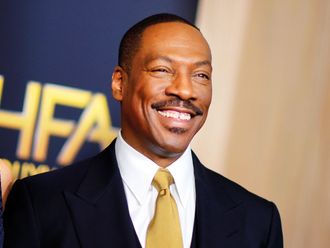
My female friends and colleagues, online and off, have been bleakly unimpressed this weekend by a recent display of bland and worldly impenitence from Bernardo Bertolucci about how he created the “butter” scene in the 1972 film Last Tango in Paris, starring Marlon Brando and Maria Schneider. But they are still more unimpressed about the resulting liberal horror, as if this was a bizarre and scandalous one-off, and not simply yet another detail in the colossal architecture of male power in the movies and everywhere else.
Hollywood’s Captain America star Chris Evans tweeted: “This is beyond disgusting. I feel rage.” Jessica Chastain tweeted: “To all the people that love this film — you’re watching a 19-year-old get raped by a 48-year-old man. The director planned her attack. I feel sick.” I felt this nausea because like everyone else, in my naivety, I had assumed that Bertolucci had discussed and rehearsed this scene with Brando and Schneider on equal terms, in advance of shooting. This was the shocking moment when Brando’s character, Paul, brutally penetrates Schneider’s character Jeanne using a stick of butter.
But in recently-surfaced video of an onstage event in 2013, Bertolucci announced that he did not tell Maria Schneider what was going to happen before the take; he and Brando had secretly planned it without her knowledge because the director wanted her humiliation to be real. Two powerful men, aged 32 and 48, had arranged for her to be assaulted. For Schneider herself, it was something more akin to actual physical assault: “I felt humiliated and to be honest, I felt a little raped.” Bertolucci’s Wikipedia page is now getting hammered to this effect.
I myself last wrote about the film in 2007, when Last Tango in Paris was re-released in the UK. I had always believed that the scene was only 50 per cent of the film’s meaning — and that the point was that Paul wanted Jeanne to do the same thing back to him: to be painfully penetrated with her fingers, and that his humiliation resided further in being old — that remark about his prostate. In the fictional world of the movie there is a kind of consent, albeit of a loaded kind. Well, we now know that there was no consent in real life. Whatever balancing moments existed in the story, Bertolucci certainly never discussed anything with Schneider without telling Brando. It was all the other way around. The power lay with the famous director and famous actor. As Chastain says, we are left with disgust.
Hollywood history is full of these iceberg-tips of abuse peeping out. Everyone knows about the big cases: the conviction and exile of Roman Polanski, the (denied and unproven) accusation of Woody Allen. But there is also a vast unacknowledged history of normalised abuse — virtually every female star and many male stars have endured a casting-couch assault, although the MO has of course been off-screen. In his effrontery, Bertolucci put his abuse in front of the camera and like so many men of that era, maintains a tacit claim of permissive liberation and declines to see what was wrong.
Amy Berg’s documentary, An Open Secret, has disclosed the range of child abuse in the film industry. Corey Haim and Todd Bridges have revealed they were assaulted as children, a toxic and hateful pattern of power and manipulation which is part of that same continuum of abuse which reaches to the adult world.
To speak out takes courage. In 1937, a dancer named Patricia Douglas accused studio executive David Ross of rape at a party given by MGM chief Louis B Mayer. Instead of staying silent, she filed a complaint in the LA County district attorney’s office. And a brutal campaign to discredit her was then created by studio fixer Eddie Mannix. Witnesses were bribed to change their stories. The male establishment of the law, politics and the press ganged up and Douglas’s career was crushed although her courage in taking on the system has since made her a heroine.
More recently, Thandie Newton has described her own outrage at this abuse happening as part of the panoply of Hollywood power — just as it did with Schneider. A certain male director was sneeringly boasting to her about having seen a lewd audition videotape another director had made Newton do when she was a struggling young actor.
In 2016, as in 1972, and 1937, there are plenty of disgusting men in the movie industry who don’t see what the problem is. Now they are being forced to confront the poison they have created.











